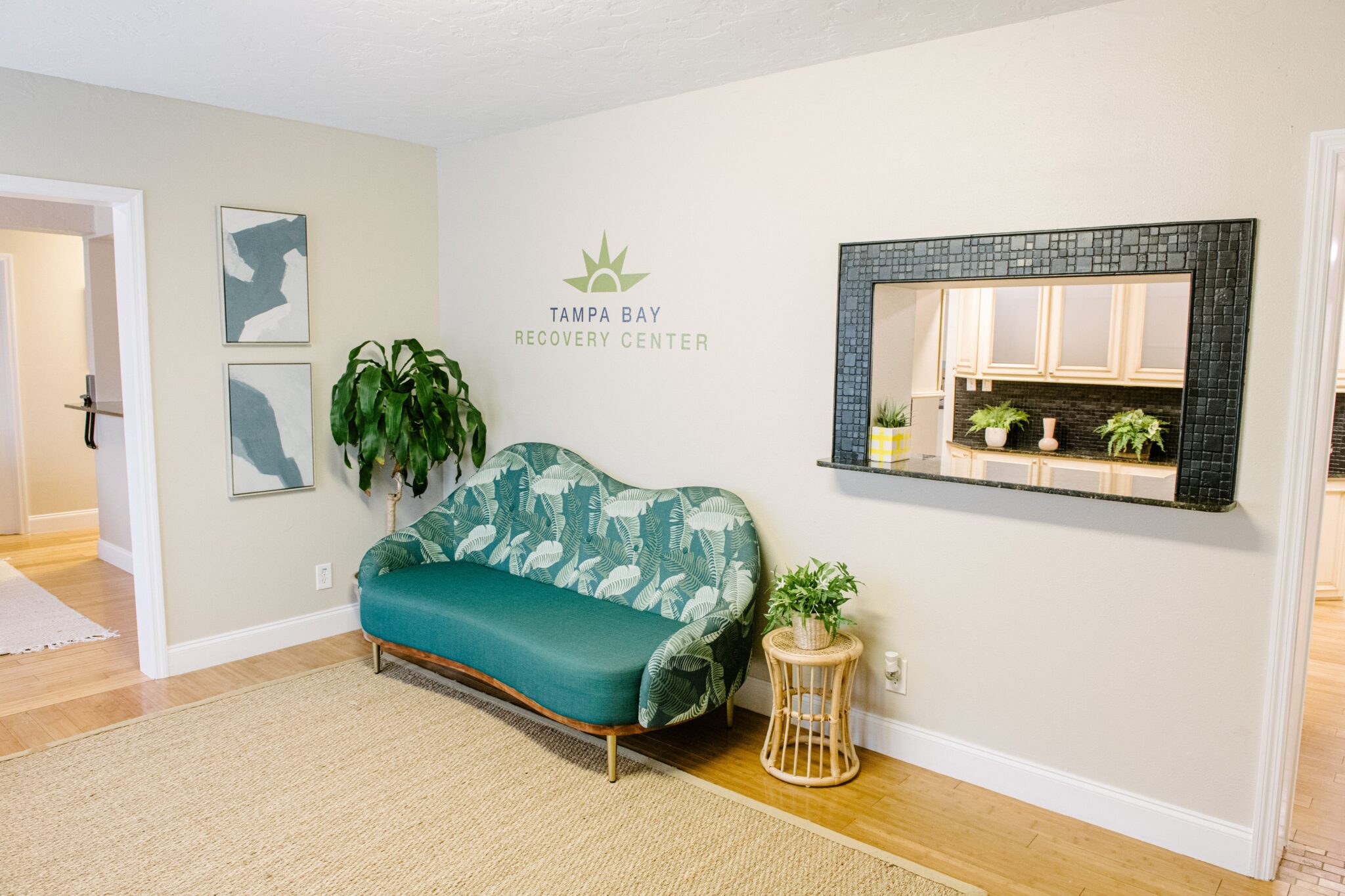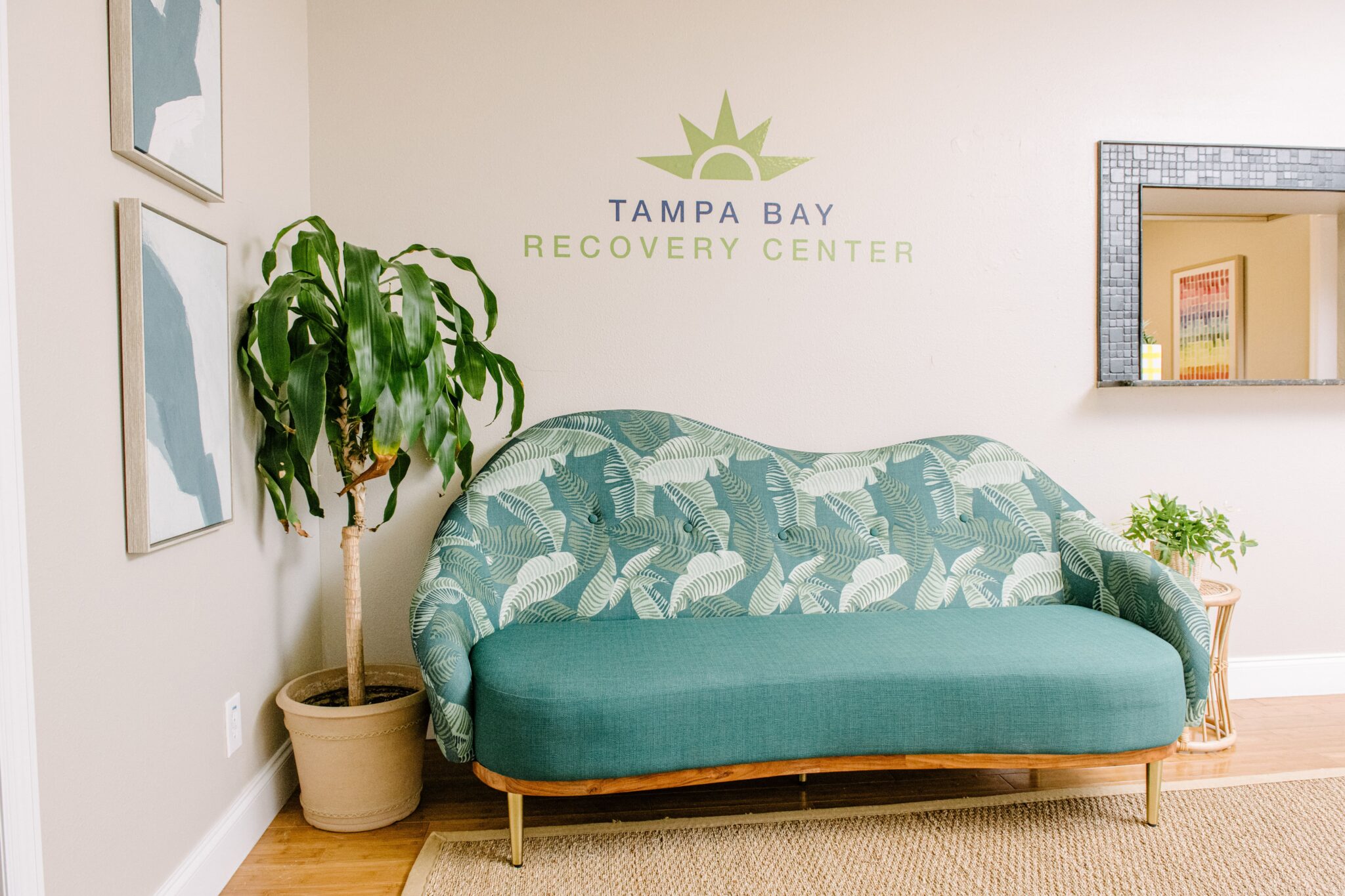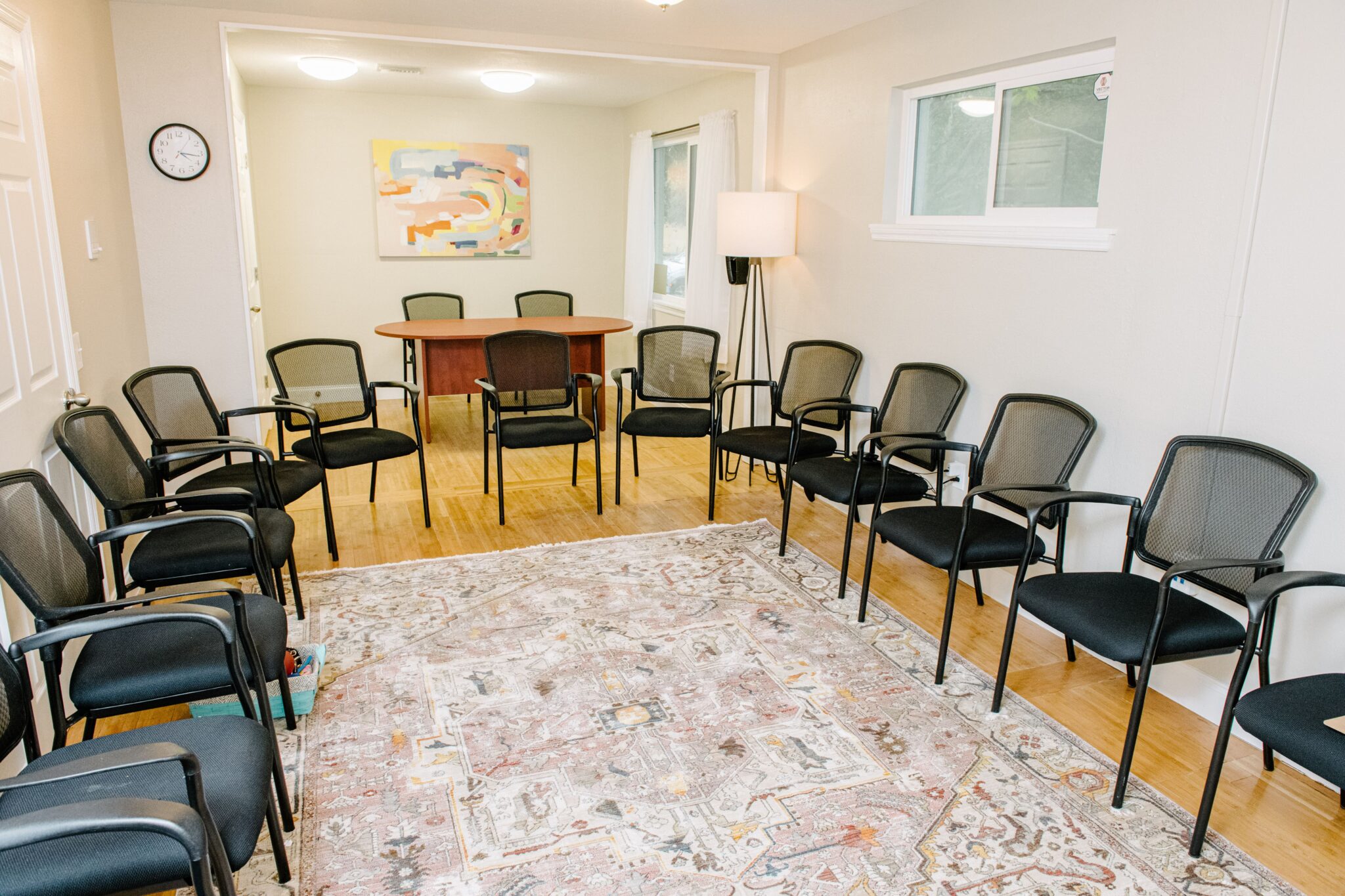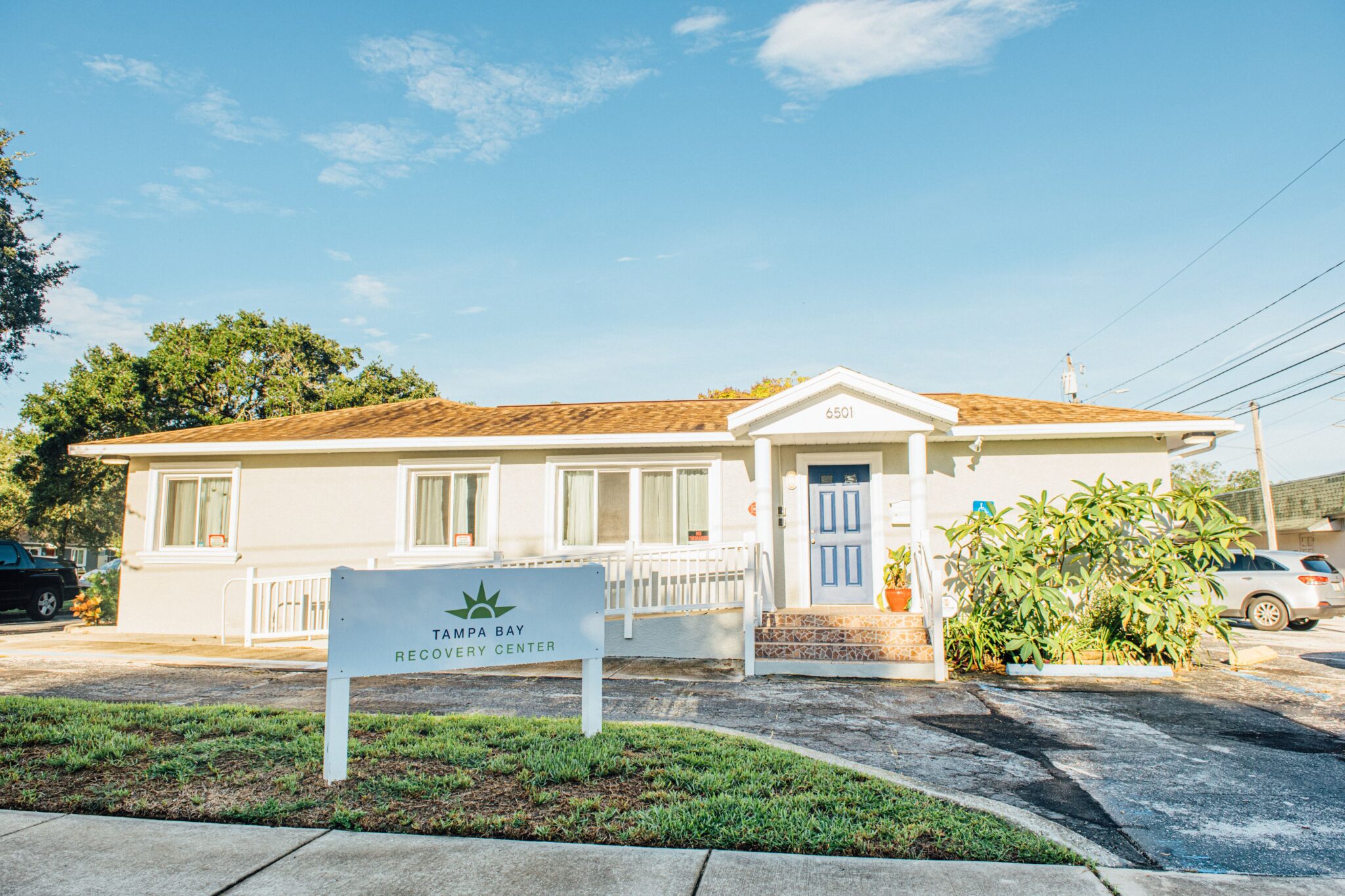Home Therapies Trauma Therapy

Trauma Therapy
Traumatic experiences are a common underlying factor among those with addiction and mental health disorders.
Trauma can happen to anyone at any time in their lives. For some, the negative impact can happen quickly. Still, others don’t experience the effects until some time has passed, and they may not recognize their difficulties come from the traumatic event that occurred. Tampa Bay Recovery Center recognizes that many negative things can come from trauma, including mental health disorders like post-traumatic stress disorder (PTSD). We treat this and other trauma-based illnesses with our trauma therapy in Tampa in order to help people make peace with their pasts and enjoy better mental health.
What is Trauma Therapy Like?
Trauma therapy helps people who have experienced singular or multiple traumatic events. The trauma may be ongoing, have happened recently, or occurred as far back as childhood. Some people recognize they have been through something traumatic, while others don’t understand their experience qualifies as trauma.
Several events qualify as being traumatic.
When someone has been a victim of trauma, specialized trauma therapy in Tampa is necessary to help them overcome it. Trauma therapy helps a person identify the traumatic event, discuss the emotions surrounding it, and learn to stop letting the trauma overrun their lives.
Take Back Control:
Contact Us Now
Addiction and mental health disorder effects the lives of millions of Americans each year. Contact Creekside Recovery Group today to get the help you deserve.
TOUR
Tour Our Tampa Bay Facility
The Four Phases of Trauma Therapy in Tampa
Trauma therapy in Tampa involves four concrete steps. Each will be explained to help the individual understand what will happen and see how they can begin to achieve their treatment goals.
- Phase 1: Grounding and Finding a Safe Space – The therapist establishes trust with the individual and helps them understand they are in a safe space of healing. The person can begin to talk about their experiences knowing they do not deserve to feel shame about what happened.
- Phase 2: Changing Belief Systems – Trauma causes people to develop deeply-held beliefs they carry with them. They often have emotional reactions such as anxiety, fear, depression, shame, and embarrassment. This phase helps the person let go of these negative emotions and begin to change their belief systems.
- Phase 3: Reconnection and Transition – The person builds on the progress made in the previous stages by engaging in role-playing exercises and other activities that help challenge them to overcome trauma. They learn to identify triggers and find ways to avoid succumbing to them by developing healthy coping skills.
- Phase 4: Preparing for the Future – The final phase uses the skills gained in the first three to prepare for a future after treatment ends. The person practices life skills and new ways to handle relationships in a healthy manner. They revisit what may trigger them and how to handle those occasions.
Symptoms Someone Has Experienced Trauma
When someone needs help overcoming trauma, they experience a range of symptoms. It can be difficult for some people to recognize that the symptoms are tied to their trauma. Common signs of trauma include:
Psychological symptoms of trauma can surface in the form of feelings of anxiety, panic attacks, depression, and moodiness. Some people also end up feeling suicidal when they cannot overcome the effects of trauma. As well, the effects of trauma can drive some people to abuse alcohol or drugs in order to cover up difficult emotions and painful memories.
Ready to Escape Addiction? Let’s get Started
Tampa Bay Recovery Center is a premier leader in the provision of addiction treatment services. If you or someone you love is in need of professional care to address a substance use disorder, reach out to us right now at (813) 733-8774 to speak with an admissions specialist who can get you started on the road to recovery.
Can Trauma Lead to Drug and Alcohol Abuse?
Someone who develops PTSD or other trauma-based mental health disorders has an increased risk of also having an addiction to drugs or alcohol. In fact, about half of people who have a mental illness also struggle with a substance use disorder. Having both conditions is called dual diagnosis. Because of this reality, trauma therapy in Tampa programs provides treatment for dual diagnosis. The benefit of this is that it allows the individual to receive care for both conditions simultaneously. This helps the person save both time and money while healing faster than if both disorders were treated separately.
Overcome Addiction with evidence-based, expert care.
What Levels of Care are Available in Trauma Therapy in Tampa?
Our trauma therapy in Tampa offers the advantage of having several levels of care. If someone who has trauma affecting their life also needs help to stop abusing drugs or alcohol, they can attend our outpatient detox program. We also provide the following outpatient care programs, ranging from requiring attendance for a few sessions per week to several days per week:
- Regular Outpatient Rehab
- Intensive Outpatient Program (IOP)
- Virtual IOP
- Partial Hospitalization Program (PHP)
An initial assessment before treatment begins will help us determine which level of care will work best for each person.
Start Trauma Therapy in Tampa Today
Have you dealt with a traumatic event or series of events and just can’t seem to move past it? You’re not alone because it often takes structured treatment from professionals who provide trauma-based therapy to heal from the past.
For this reason, Tampa Bay Recovery Center created a program for trauma therapy in Tampa that puts you back in the driver’s seat. We help people overcome trauma-based mental health disorders and substance use disorders that co-occur with them.
If you would like to know how we can help you overcome trauma and learn to live a life with joy again, visit our admissions page now. Our staff is happy to answer your questions.
CONTACT US
We Are Always Here For You
Our compassionate team is ready to assist you—contact us now for confidential support tailored to your needs!












